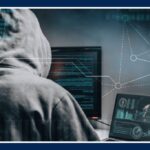A leaked audio recording has directly implicated former Bangladeshi PM Sheikh Hasina in last year’s violent crackdown on student protesters, according to a BBC investigation. The revelations come amid a dramatic shift in the country’s political landscape following Hasina’s resignation and flight to India.
Verified by the BBC, the audio captures Hasina allegedly instructing a senior government official to use “lethal weapons” and to “shoot wherever they find them (the protesters).” The directive reportedly came during the height of the July–August 2024 unrest, when student-led demonstrations erupted across the country over a controversial quota system in public sector jobs. The United Nations estimates that at least 1,400 people were killed during the crackdown.
The protests, spearheaded by the Students Against Discrimination (SAD) movement, swelled into a nationwide call for democratic reforms and accountability. Tensions reached a tipping point when demonstrators stormed the prime minister’s official residence in Dhaka. Facing mounting pressure and loss of control, Hasina resigned and fled to neighbouring India on August 5, 2024.
Her sudden departure marked the collapse of the long-ruling Awami League government. Despite Bangladesh issuing a formal request for her extradition, Hasina has remained in India. On August 8, 2024, Nobel Peace Prize laureate Dr Muhammad Yunus was appointed to lead an interim government, charged with guiding the country through a volatile political and judicial transition.
Hasina now faces charges of crimes against humanity and mass killings before a special tribunal in Dhaka. In her first public statement from exile, she denied any responsibility for the violence. However, prosecutors view the leaked audio as the most significant evidence yet that she personally authorized the shoot-on-sight orders during the protests.
An Awami League spokesperson has dismissed the allegations, arguing that the audio does not demonstrate any unlawful intent or disproportionate response. Nonetheless, the tape is expected to be a central piece of evidence in the tribunal’s proceedings.
Bangladesh remains in a fragile state, as the interim government works to stabilize the country and restore democratic order after one of the bloodiest episodes in its recent history.







